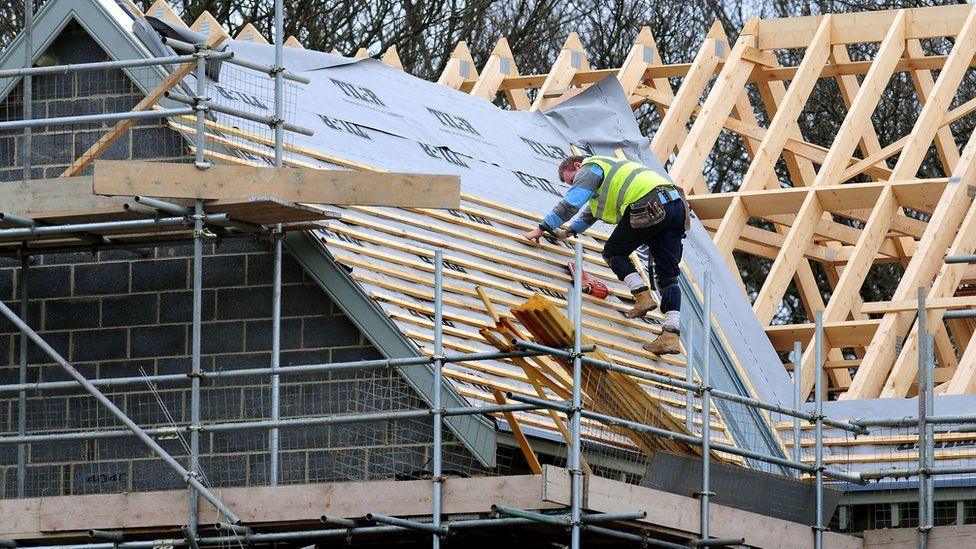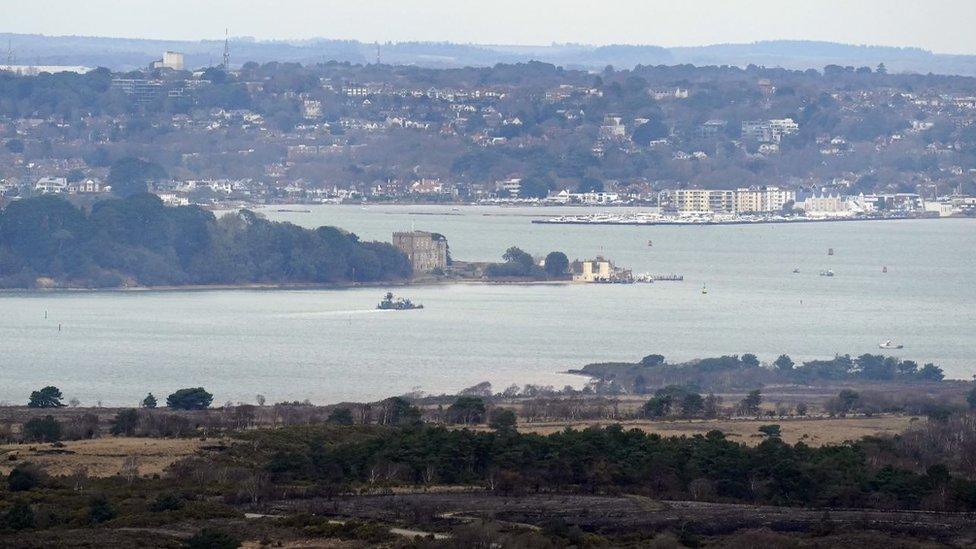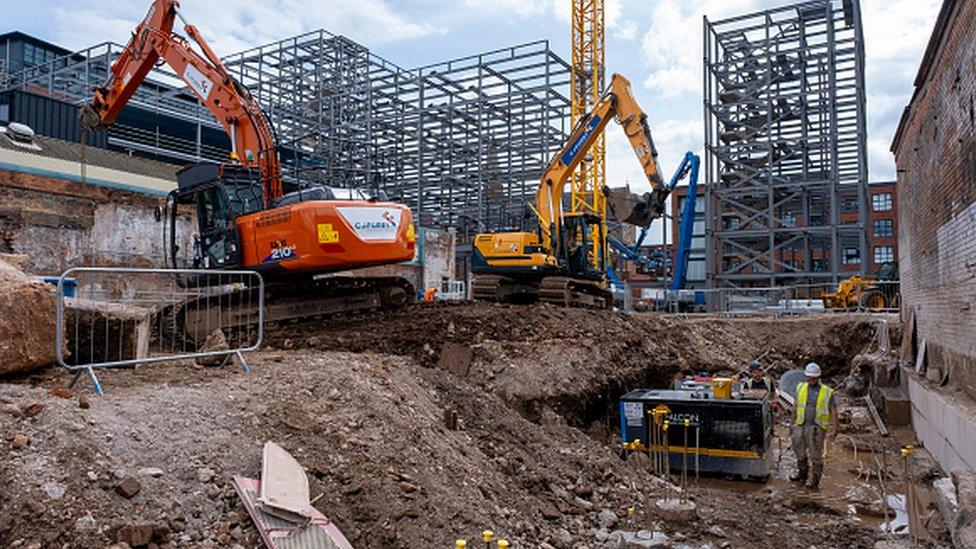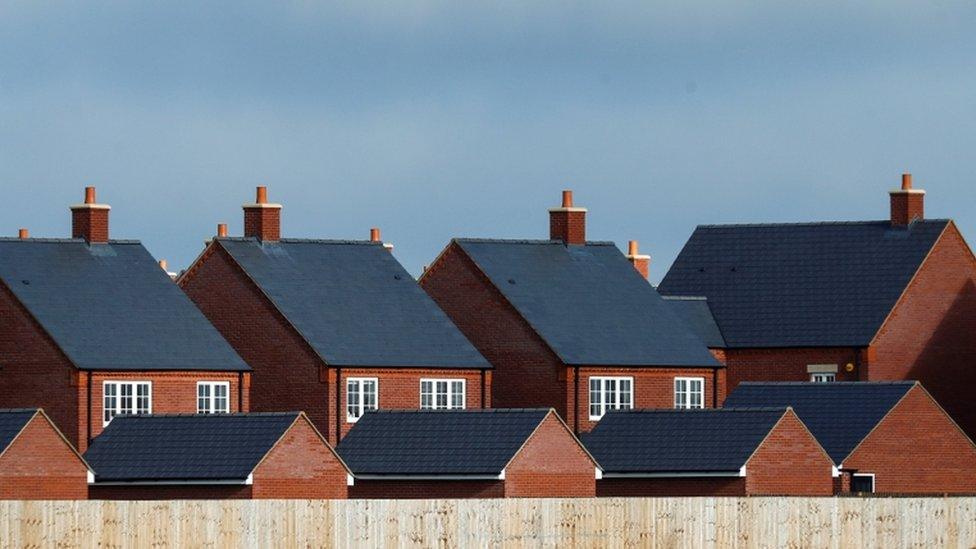Pollution rules delaying thousands of new homes in Dorset
- Published

Developers must prove schemes in protected areas are "nutrient neutral"
Plans for thousands of new homes in Dorset are being delayed because of water pollution regulations.
About 3,500 homes in the Dorset Council area are in "planning limbo" due to nutrient neutrality rules, according to the Local Democracy Reporting Service.
The rules require developers to mitigate nutrient pollution from new homes, which is harmful to ecosystems in rivers and estuaries.
Dorset planning councillor David Walsh described the delays as "ridiculous".
The rules exist because increased levels of nutrients, particularly nitrogen and phosphorus, can speed up the growth of certain plants in freshwater habitats, negatively impacting wildlife.
Natural England rules mean scores of councils have been told not to authorise new developments in protected areas unless builders can prove their projects are "nutrient neutral".
New homes in Bere Regis are among those hit by the rules because its rivers and streams run towards Poole Harbour.

Poole Harbour is a Site of Special Scientific Interest
Mr Walsh said: "We have 3,500 houses in limbo that can't get planning permission until this is sorted out.
"It's ridiculous. While we can't now build in the catchment areas, developers are looking in other areas to develop speculatively."
Last month, the House of Lords voted against government plans to end nutrient neutrality requirements for new developments.
Speaking at October's full council meeting, Lytchett and Upton councillor Andrew Starr described the government's pledge to scrap the rules as "very worrying".
"This would seem to be letting the developers build new homes and having the public pick up the bill for mitigation," he said.

Follow BBC South on Facebook, external, X, external, or Instagram, external. Send your story ideas to south.newsonline@bbc.co.uk.
Related topics
- Published21 September 2023

- Published14 September 2023

- Published18 May 2022
